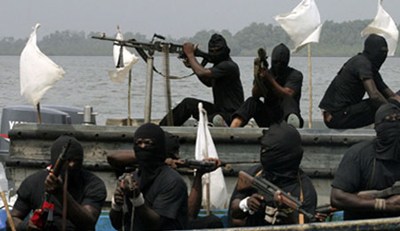
Top officials from West-African nations plan to meet as soon as possible to discuss strategies to counter the growing threat of piracy in the Gulf of Guinea. Possible strategies include arrests, prosecutions and seizing of pirate ships.
While piracy is stabilizing in other regions of the globe, it is on the rise off the coast of West Africa. The Gulf of Guinea is home to Africa’s leading oil production, and sees regular international shipments of metal and cocoa cross it’s now-dangerous waters.
So far, ships have not received the same protection as their cross-continent counterparts. The international patrols that have significantly reduced piracy near Somalia are nowhere near as present in West Africa.
For this reason, heads of all West African nations will meet in Cameroon to discuss adopting a similar plan for combatting piracy as the one that was successful in East Africa. The code of conduct that will be developed will be based on the agreements reached by East African and Middle Eastern nations in 2009. That code required governments to arrest and prosecute pirates to the fullest extent of the law, as well as seize any vessels believed to be involved with piracy.
The head of the U.N.’s International Maritime Organization, Koji Sekimizu, told the press that his organization was supporting the effort and seeking financial support from wealthier nations. While financial support would help, it may take what it took in the east– a force of international patrols to help combat this decentralized and slippery threat.
Although Sekimizu said that it was too early to tell if such an effort would be needed near Nigeria, he did not rule out the possibility. As time moves on and pirate attacks continue– this past May armed pirates raided an oil tanker and took an unknown number of crew members hostage — it becomes more clear that international cooperation may be essential to stop the bleeding.